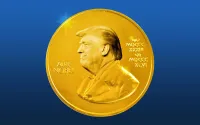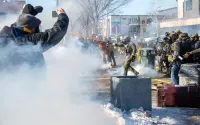The following was given on April 25 as the inaugural PEN Arthur Miller Freedom to Write Memorial Lecture.
In March 1985 Arthur Miller and Harold Pinter made a trip together to Istanbul. At the time, they were perhaps the two most important names in world theater, but unfortunately, it was not a play or a literary event that brought them to Istanbul, but the ruthless limits being set on freedom of expression in Turkey at that time, and the many writers languishing in prison. In 1980 there was a coup in Turkey, and hundreds of thousands of people were thrown into prison, and as always, it was writers who were persecuted most vigorously. Whenever I've looked through the newspaper archives and the almanacs of that time to remind myself what it was like in those days, I soon come across the image that defines that era for most of us: men sitting in a courtroom, flanked by gendarmes, their heads shaven, frowning as their case proceeds.... There were many writers among them, and Miller and Pinter had come to Istanbul to meet with them and their families, to offer them assistance, and to bring their plight to the attention of the world. Their trip had been arranged by PEN in conjunction with the Helsinki Watch Committee. I went to the airport to meet them, because a friend of mine and I were to be their guides.
I had been proposed for this job not because I had anything to do with politics in those days, but because I was a novelist who was fluent in English, and I'd happily accepted, not just because it was a way of helping writer friends in trouble, but because it meant spending a few days in the company of two great writers. Together we visited small and struggling publishing houses, cluttered newsrooms, and the dark and dusty headquarters of small magazines that were on the verge of shutting down; we went from house to house, and restaurant to restaurant, to meet with writers in trouble and their families. Until then I had stood on the margins of the political world, never entering unless coerced, but now, as I listened to suffocating tales of repression, cruelty, and outright evil, I felt drawn to this world through guilt— drawn to it, too, by feelings of solidarity, but at the same time I felt an equal and opposite desire to protect myself from all this, and to do nothing in life but write beautiful novels. As we took Miller and Pinter by taxi from appointment to appointment through the Istanbul traffic, I remember how we discussed the street vendors, the horse carts, the cinema posters, and the scarfless and scarf-wearing women that are always so interesting to Western observers. But I clearly remember one image: at one end of a very long corridor in the Istanbul Hilton, my friend and I are whispering to each other with some agitation, while at the other end, Miller and Pinter are whispering in the shadows with the same dark intensity. This image remained engraved in my troubled mind, I think, because it illustrated the great distance between our complicated histories and theirs, while suggesting at the same time that a consoling solidarity among writers was possible.






